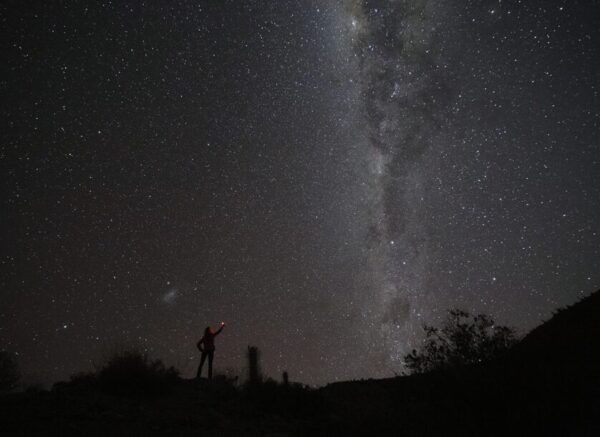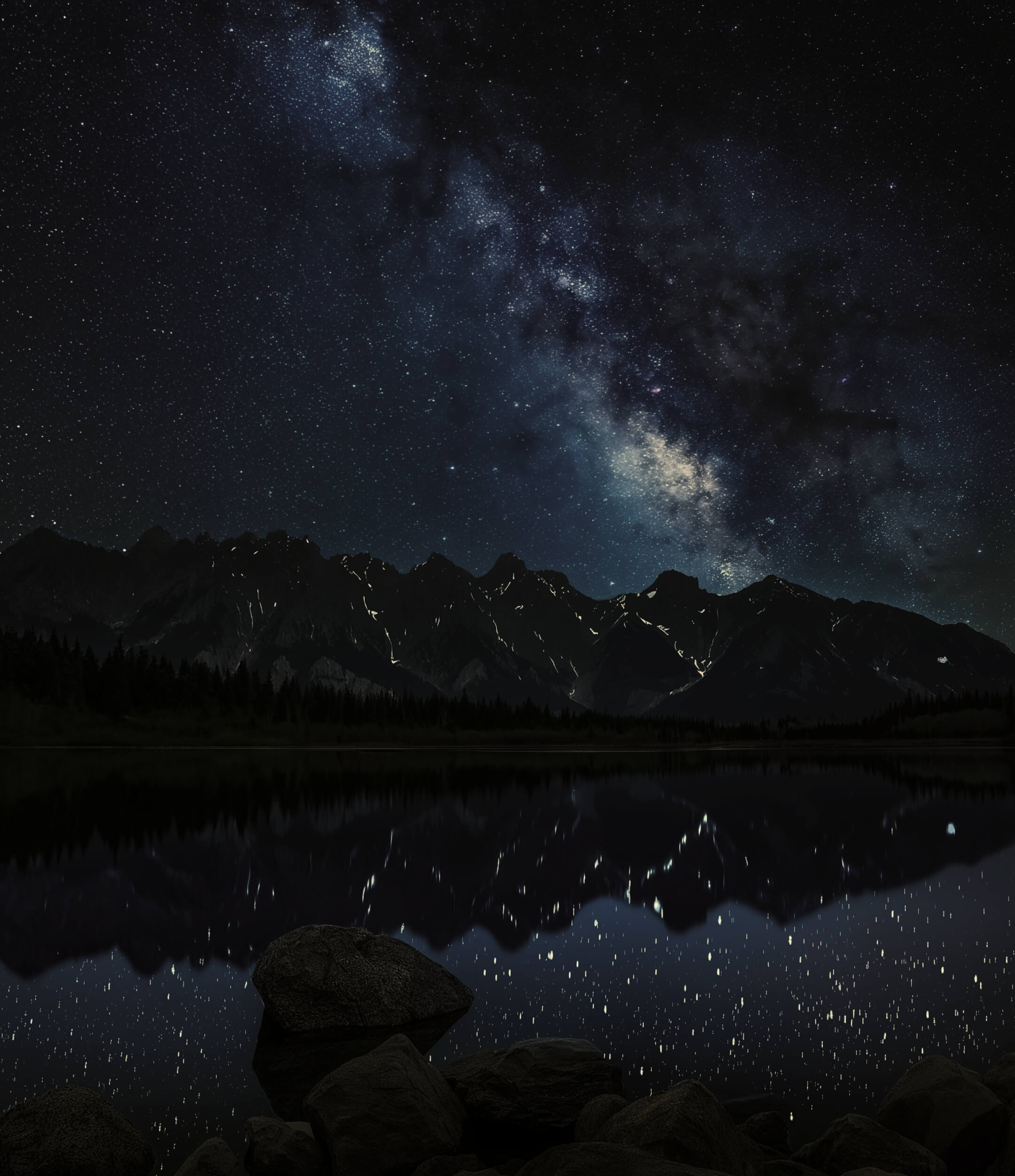Río Hurtado seeks second DarkSky certification in Chile


Posteado
Cielos Chile
schedule Tuesday 26 de November
With more than 300 clear nights a year and an outstanding natural environment, Río Hurtado stands out as an ideal candidate for the DarkSky Community certification, which would enhance its recognition as one of the key astrotourism destinations in Chile.
In the Limarí province of the Coquimbo region, Río Hurtado is a commune that stretches over 160 kilometers and is made up of more than 20 small rural localities. It was declared one of the 29 astronomical communes that have special protection under the New Light Norm, as it is located less than 100 km from the observatories at Cerro Pachón and Cerro Tololo.
Characteristics such as low humidity in the air, air transparency and stability, along with more than 300 clear nights a year, make it one of the best dark skies in the world. This has motivated the recent development of astrotourism in the area, which hopes to consolidate with the DarkSky Community certification from the International Dark Sky Places (IDSP) program, which recognizes places for their efforts to preserve and protect dark skies through responsible lighting policies and educational programs.
Elke Schulz, a photographer, author, astronomical guide in the area, and member of the DarkSky and ACHAYA associations, believes that the skies of Río Hurtado are an ideal candidate for certification due to their exceptional natural conditions and long-term tourism potential. “The commune is not yet very developed touristically, so the original life and virgin nature are still preserved. This provides the opportunity to establish sustainable and responsible astrotourism from the beginning,” she stated.
Astrotourism in Río Hurtado: A Decade of Work
In 2015, astrophotographer Daniel Verschatse inaugurated the observatory at Hacienda Los Andes, the first initiative to protect the dark skies of Río Hurtado – this facility is currently closed due to a fire that affected the surrounding installations. There, Elke Schulz worked, who is currently supporting the certification process of the commune alongside astrophotographer Eduardo Latorre, led by the Municipality, the Foundation, and the Office for the Protection of the Sky of Northern Chile (OPCC).
This process also has the support of the observatories Obstech-El Sauce and Deep Sky Chile, as well as the Instituto Milenio de Astrofísica, the AURA-Chile observatories, and Sernatur de la Región Coquimbo.
DarkSky Community: Light Governance and Protection of Dark Skies
The Municipality of Río Hurtado has also played a key role in the process, as due to the characteristics of this locality, it can only apply for certification in the DarkSky Community category. According to Dark Sky International, this designation is granted to cities or towns with quality outdoor lighting ordinances that educate residents about the importance of dark skies. This is why the municipality’s leadership has been essential to advance this initiative.
However, there are still challenges to overcome, including improving education on light pollution. “In Río Hurtado, we have many small towns, and we observe that there are still many people who are unaware of these issues; there is concern about crime, and there is a tendency to use brighter lights. This is related to a lack of awareness and dissemination, so it is necessary to visit these places,” Elke commented.
Impact of Astrotourism on the Local Economy of Río Hurtado
Certification, Elke believes, will allow the commune to increase its visibility and achieve national and international recognition as the first model community with a DarkSky certification in Chile. It would also be the second site in the country certified by this organization after the Santuario Gabriela Mistral. “With this, the commune could take advantage of the global astrotourism market and create more investment opportunities for companies and organizations related to astronomy and/or astrophotography,” she pointed out.
Today, the community of Río Hurtado already benefits from the observatories that exist nearby, and astrotourism has boosted the local economy with the development of restaurants, camping sites, and cabins, which in turn have stimulated the construction market and generated resources for the municipality through permits. Additionally, it has created jobs for people in the commune. “This can be expanded and intensified even further. Studies from other certified places indicate that property values increase with certification,” Elke added.
The Río Hurtado team continues to work on gathering the necessary information to send to DarkSky, and they hope to have updates by mid-2025. “Certification is not the end. We must continue with all the efforts we are making today. It is very relevant because the fight against light pollution is important not only for astronomers but also for the health of people and ecosystems. It is not easy because we grew up with certain myths and beliefs, which is why it is a process,” she concluded.

Subscribe to our newsletter
Receive relevant information about the skies of Chile every month
